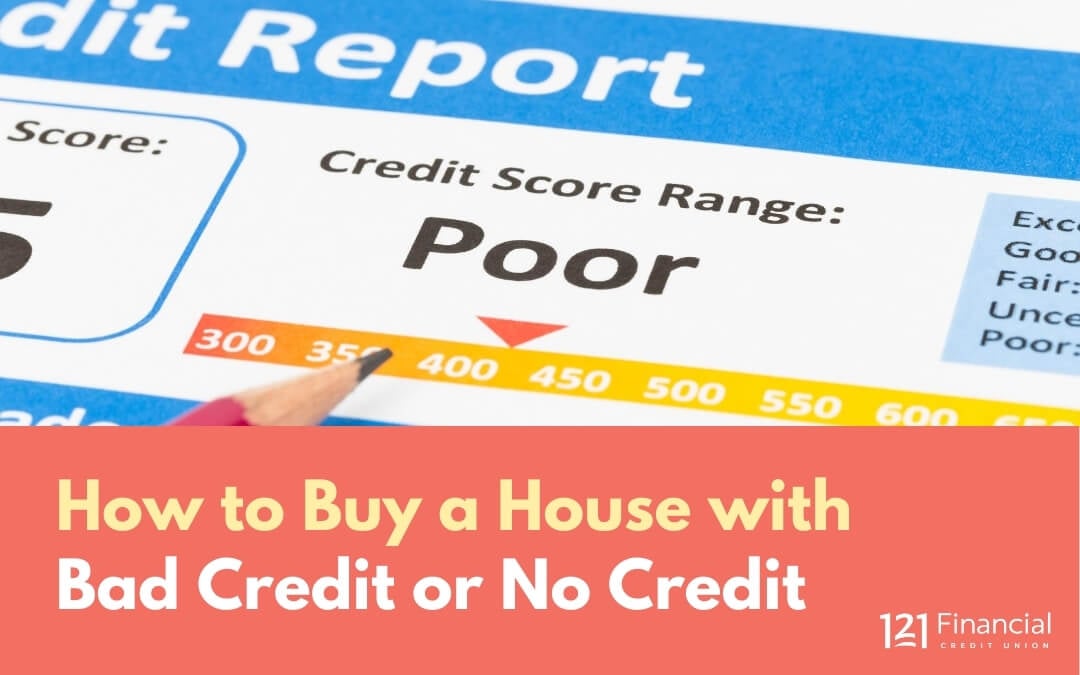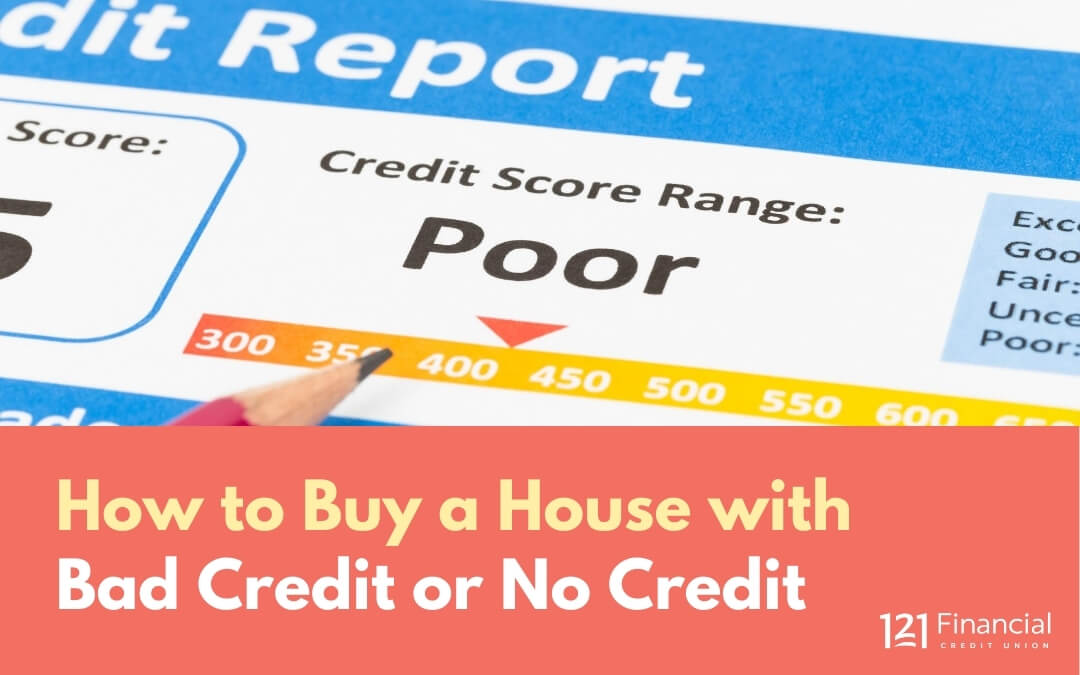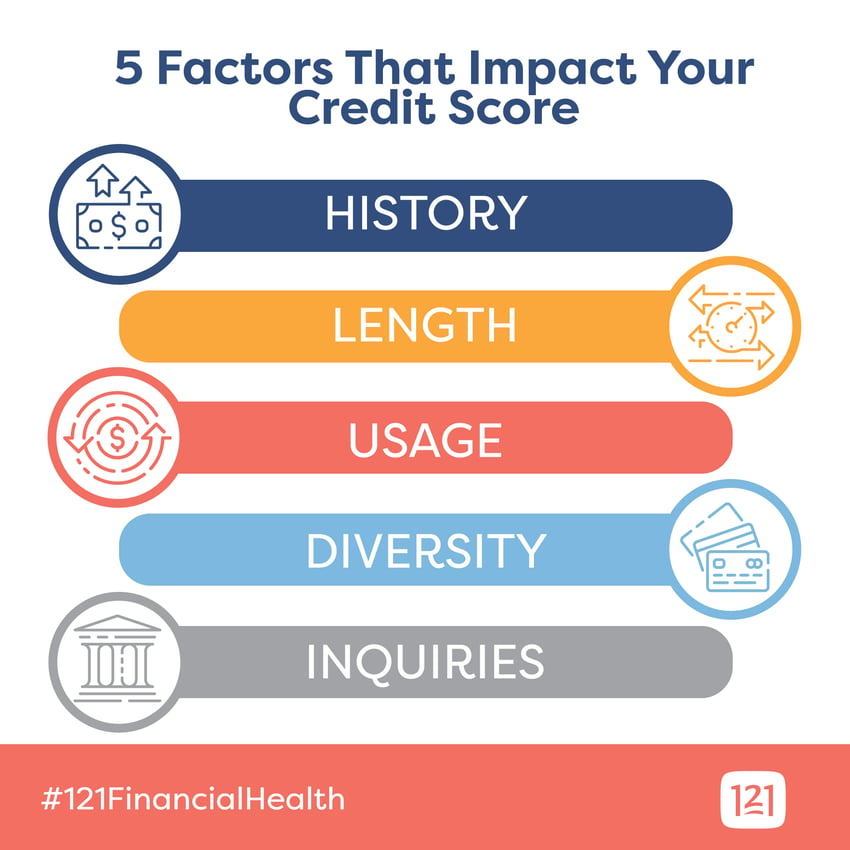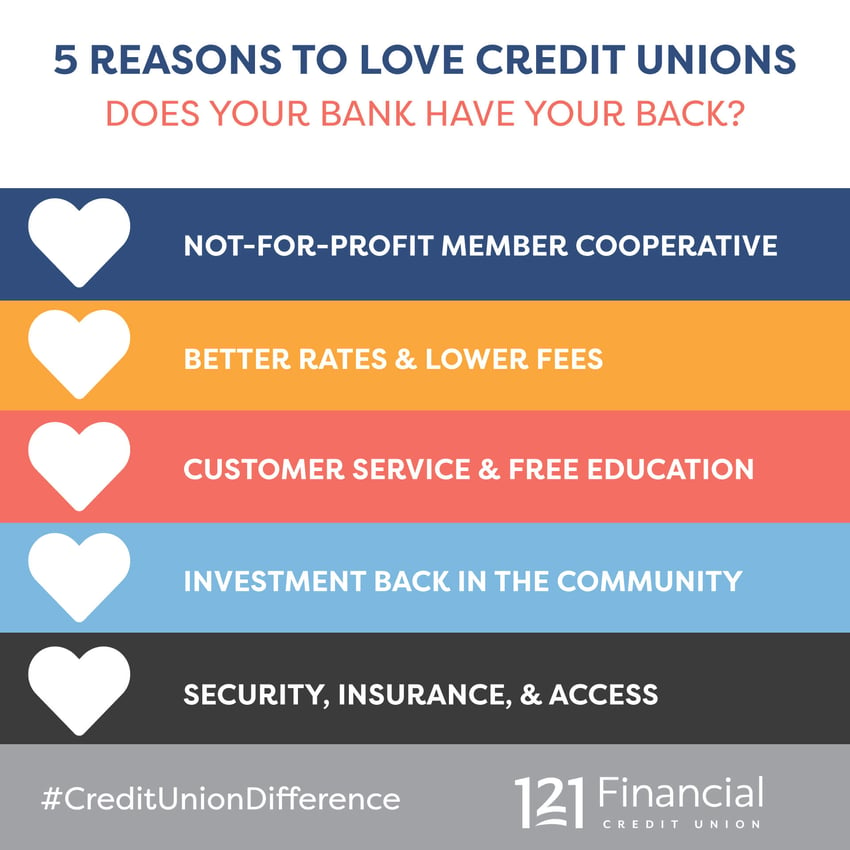
How to Buy a House with Bad Credit or No Credit

Are you paying thousands of dollars for rent because you don’t know how to buy a house with bad credit? You might have to pay a higher interest rate or save up for a larger down payment, but there are ways to get your foot in the door. In this article, we will help you understand everything about credit scores and provide you with tips on how to buy a house with bad credit or no credit, including how to rebuild credit and loan options.
Here's an overview of what we will cover:
- What is a credit score
- Who provides credit score ratings
- What factors affect credit reports
- What is a good credit score
- How to buy a house with bad credit or no credit
What Is a Credit Score
A credit score is a rating used by lenders to tell them how likely you are to pay them back if they loan you money or give you a credit card. The score comes from your credit history.
The more money you’ve borrowed and the faster you’ve paid it back, the better your credit score will be. Called a FICO score, the report also may also include other details that help lenders assess your credit risk. FICO scores range from 300 to 850.
VantageScore is similar to FICO but uses a different model. It usually accompanies a report from one of the three big credit bureaus.
The Three Big Credit Bureaus
Three national companies provide credit score ratings:
- Experian
- Equifax
- TransUnion
Each company, like FICO and VantageScore, uses a different model to calculate scores.
Because some lenders don’t report information to all of these credit bureaus, scores vary. Some lenders may also use additional criteria.
Two Kinds of Credit Scores
Credit scores fall into two categories: generic and custom.
- Generic scores are used by various businesses and lenders to decide how likely you are to pay back the money you owe them. They are derived from one standard formula and are the same in all credit agencies.
- Custom scores are unique to individual lenders and rely on information from a specific lender’s own database to determine credit risk.
What Factors Affect Credit Reports?
Your credit score depends on specific information from your credit history when your score was calculated. It shows you what you need to do to change or improve your rating.

Credit scores depend on factors like these:
1. The total amount you owe
2. How many accounts you have
3. How many late payments you’ve made
4. How long you’ve had the accounts
What Is a Good Credit Score?
Just as individuals are unique, so are lenders. Depending on the particular scoring model and situation, Experian says scores fall into these categories:
- A score from 580 to 669 is fair.
- A score from 670 to 739 is good.
- A score from 740 to 799 is very good.
- A score of 800 or higher is excellent.
Most lenders consider scores above 670 as low risk. Borrowers with scores between 580 to 669 may find it difficult to find a loan with good terms. Those with scores under 580 may find it difficult to qualify for credit.
Does Checking Scores Lower Ratings?
There are two types of credit checks: hard inquiries and soft inquiries.
- A hard inquiry takes place when you open a line of credit, such as a loan or credit card. It can lower your score by a few points.
- A soft inquiry occurs when you check your own credit or a credit card company or lender checks to pre-approve you for an offer. Soft inquiries don’t affect your credit scores.
How to Buy a House With Bad Credit or No Credit
It’s harder to buy a house if you don’t have a good credit rating, and you’ll pay higher interest rates because the mortgage company is taking a bigger risk. You may also need a larger down payment.
Here's a few things you can do if you want to buy a house with no credit or bad credit:
Know Your Credit Score
Some banks, mortgage lenders, and credit card companies include your credit rating on your statement or in your online account.
You can also buy a report from a major credit bureau or FICO, or you can get it from free credit scoring site like Credit Karma.
You can also get a free copy of your credit reports every year at Annual Credit Report. Some companies offer additional reports if you register on their websites.
Monitor Your Credit
Approximately 1 in 4 credit reports include incomplete or erroneous information.
It’s a good idea to monitor your credit rating to make sure it’s correct and includes all of your accounts. You can do this yourself or use an online credit monitoring company.
If you find errors or missing information, you can:
- Contact the creditor or the lender
- Dispute with the company that made the mistake. Individual companies may have additional ways to dispute reports
Repair or Build Your Credit
You can’t repair a bad credit history overnight, but there are steps you can take to make buying a house with bad credit easier:
- Monitor your credit reports for accuracy.
- Keep a balance of 50% or less of credit limit.
- Hold on to older accounts.
- Limit extra credit cards.
- Use several kinds of credit and payments.
- Don't co-sign a loan for someone else.
- Use secured cards to establish credit.
Although both present challenges, having bad credit is not the same as having no credit.
Having no credit means you haven’t created a credit history, but having bad credit means you’ve made mistakes or experienced unfortunate events that kept you from paying your bills on time.
It’s easier to build a credit history than to rebuild a bad one, but we have eight simple steps to help:
1. Get a secured card with an upfront deposit.
2. Pay your bills on time.
3. Only use a small portion of your available credit.
4. Get a secured loan at a local bank or credit union.
5. Add someone to add you to their credit card as an authorized user.
6. Ask someone to co-sign a loan or credit card.
7. Get a credit report and correct errors.
8. Pay off credit with high interest rates first.
How Long Does It Take to Repair Credit?
You can repair mistakes in your credit history, but the time it will take depends on how recently they occurred and how serious they were.
If you have a missed or late payment or if it goes to a collection agency, it will show up on your credit report for 7 years. A bankruptcy may stay as long as 10 years.
You’ll see improvements as soon as you make changes to repair the errors in your financial past.
Apply for an FHA Home Loan, VA Loan, Conventional Loan or an USDA Loan
Usually, a FHA loan is the best option for a homebuyer with bad credit or no credit. Other options include VA loans, conventional loans, and USDA loans.
The higher your credit rating and the larger your down payment, the more options you’ll have, especially if you have a rating of at least 600.
FHA Home Loan
An FHA loan is insured by the Federal Housing Administration. It has a lower interest rate than other loans, and you can pay as little as 3.5% down if your FICO score is 580 or higher.
The FHA insures the loans, but traditional mortgage lenders hold the mortgages.
FHA loans have some drawbacks:
- The FHA accepts scores as low as 500, but lenders can charge higher rates.
- Lenders can require scores higher than 500.
- Private mortgage insurance (PMI) must be paid for the life of the loan.
Conventional Home Loans
The government doesn’t insure conventional loans, and the loans have higher rates for borrowers with bad credit.
They do, however, base fees on the credit score and the loan-to-value ratio, taking both into consideration.
VA Home Loans
VA loans, which come from the Department of Veterans Affairs, don’t have a minimum score requirement.
Most lenders, nevertheless, like to see credit scores of 580 or higher before approving.
USDA Home Loans
Most mortgage lenders require a FICO score of 640 or higher to qualify for a USDA home loan.
Some lenders consider scores of 580, but that subjects borrowers to more scrutiny than those who have higher scores.
Get a Co-signer
If you know you can pay back a loan but still don’t have the credit rating you need, you can ask a friend or family member to cosign. This means they will be responsible for the loan if you default.
The co-signer may or may not be an occupant of the home. If neither you nor the co-signer makes a payment, the lender can take legal action against both of you.
Use a Credit Union
If you’re still wondering how to buy a house with bad credit, a credit union might be the answer to your problems.

A credit union works much like a bank, but it’s a non-profit with members. Because the members own the credit union, they are more likely to bend the rules with mortgage rates and fees.
A credit union usually has these advantages over a bank:
- Personalized Service - Credit unions put an emphasis on serving their members while banks focus more on profits. Credit unions also hold on to their mortgages instead of selling them, allowing you to stay with the original lender during the duration of your loan.
- Lower Fees - Closing costs, loan origination fees, and other expenses add up to a lot of money. Although credit unions charge fees, they are usually lower than those of other lenders, resulting in savings from hundreds to thousands of dollars.
- Lower Interest Rates - Because credit unions don’t have to pay federal taxes and are usually more interested in serving their members than making extreme profits, they often have lower interest rates. Even a fraction of a percent can save money over the life of a loan.
- More Flexible Approval - Credit unions are usually more understanding about bad credit scores and small down payments. If they keep the mortgage in-house, they also have more flexibility with payments and interest rates. It’s usually easier to get loan approval from a credit union where you are a member.
Despite their benefits, credit unions can have disadvantages:
- Limited Locations - Credit unions are not as big as banks, and there are fewer locations. If you choose a credit union, you may have fewer branch options and shorter hours of availability.
- Membership Requirements - Most banks have simple requirements for clients, but credit unions are pickier about their membership. You must meet the rules to become a member.
- Fewer Options for Financing - Credit unions are usually smaller than banks, and they keep less money on hand to lend. Their limited assets may limit their ability to make loans.
- Limited Technology - If you’re impressed with the bells and whistles of the latest technology, credit unions may not satisfy your lust. You may need to rely on old-fashioned customer service instead of shiny apps with around-the-clock services.
Get Help Now
121 Financial Credit Union has been Jacksonville’s hometown choice since 1935. One of the first credit unions in the country, we opened not long after President Franklin D Roosevelt signed the Federal Credit Union Act.
We offer home mortgage loans, equity loans, vehicle loans, student loans, and personal loans.
We can also help you with your investments and insurance needs. And as an added benefit, our financial counseling is free to members.
Whether you want to know how to buy a house with bad credit or refinance your home mortgage at a lower interest rate, we can help. Call us toll free at 800-342-2352 for more information.
